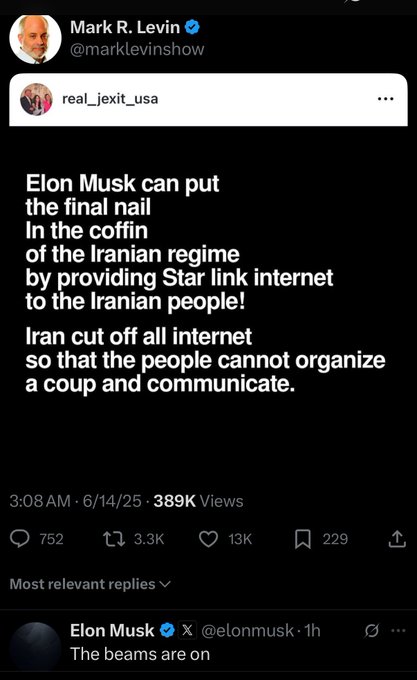As tensions between Iran and Israel escalate through missile strikes and cyber warfare, fears of broader international conflict are growing rapidly. Global powers are being watched closely, with speculation mounting over how the U.S. and European nations will respond if the crisis deepens. Anxiety surged further when reports emerged that a senior Russian general had urged President Vladimir Putin to mobilize one million troops, raising alarms about the potential for expanded confrontation. President Donald Trump, fresh off ordering airstrikes on Iran’s nuclear sites, departed the G7 summit in Canada early, signaling the rising urgency of the situation. Meanwhile, Elon Musk quietly stepped into the conflict zone by activating Starlink internet services in Iran, where the government has imposed widespread digital blackouts.
Musk’s move was initially praised as a bold effort to restore connectivity for Iran’s 90 million citizens. However, backlash soon followed due to the steep $110 monthly subscription fee, which is prohibitively expensive for many Iranians, especially amid crisis. An international petition launched by the advocacy group Ekō is now calling on Musk to waive the fee, pointing out that he provided free Starlink access in Ukraine during wartime. Critics argue that most Iranians lack access to international payment methods like credit cards and accuse Musk of prioritizing optics over genuine aid. Advocates warn that without affordable internet access, the Iranian government can more easily suppress protests and control information, framing Starlink not just as a service, but as a potential lifeline for a population under siege.





